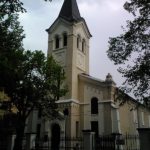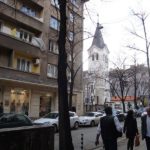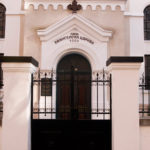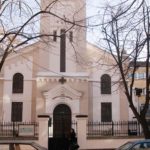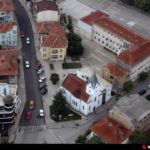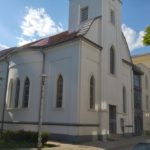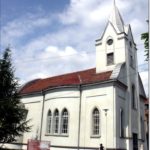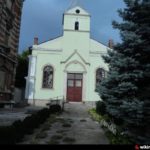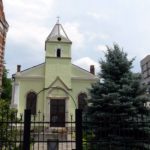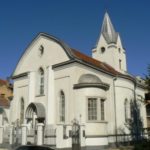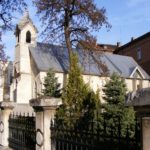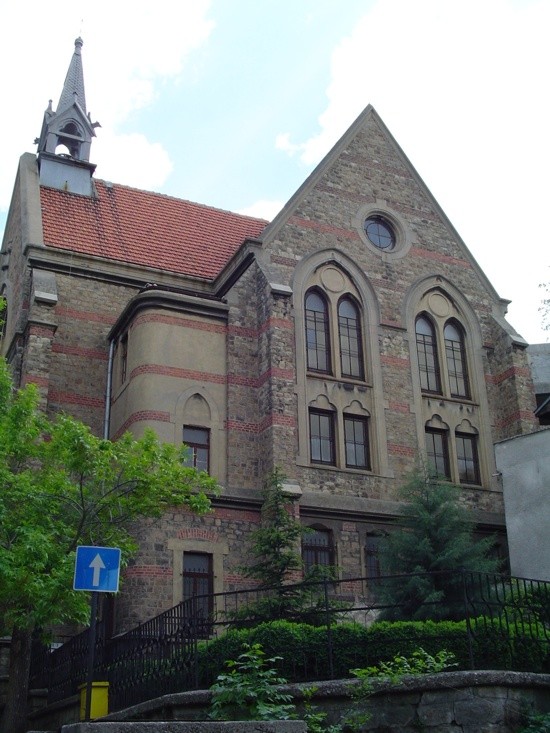ALL BOOKS CHRISTMAS SALE
Since 2011, we have authored over two dozen books related to our ministry and mission work in Eastern Europe. As several of the prints are now almost exhausted and second/third editions and several new titles are under way, we are releasing all currently available editions in a Christmas sale through the month of December. All titles are available at up to 30% off and Amazon offers free shipping and extra savings for bundle purchases.
Bulgarian Cookbooks for Christmas
2016 Cooking Traditions of Bulgaria, Expanded Second Edition (Black & White)
2015 European Delights: A Sweet Journey Through Europe
2014 Ancient Recipes of Bulgaria
2013 Cooking Traditions of Bulgaria (Second Edition)
2012 Cooking Traditions of Bulgaria
Get them all today at Aamazon.com
Bulgarian Evangelical Church in Sofia
Bulgarian Evangelical Church in Kazanlak
Bulgarian Evangelical Church in Ruse
Bulgarian Evangelical Church in Plodvid
Giving Thanks
Bulgarian Evangelical Churches in the European Union (2017 Report)
- Bulgarian Evangelical Churches in Germany
- Bulgarian Evangelical Churches in Spain
- Bulgarian Evangelical Churches in England
- Bulgarian Evangelical Churches in France
- Bulgarian Evangelical Churches in Belgium
- Bulgarian Evangelical Churches in Italy
- Bulgarian Evangelical Churches in Cyprus
- Bulgarian Evangelical Churches in Crete
READ MORE:
- First Bulgarian Church in Chicago Opened in 1907
- Gateway Cities for Bulgarian Evangelical Churches
- How to Start a Bulgarian Church in America from A-to-Z
- Unrealized Spiritual Harvest as a Paradigm for Cross-Cultural Ministries among Migrant and Disfranchised Ethnic Groups in America Today
Is Migrant crisis in Europe really under control?
Turkey deal may have stopped refugees from reaching France and UK but it has not resolved the crisis
Less than two years after the European Union was confronted with an unprecedented influx of refugees, during which over a million people from Syria, Iraq, Afghanistan and beyond flooded Europe’s borders, EU officials are saying that the migrant crisis is under control. For this, the EU credits its March 2016 agreement with Turkey, which was intended to curb entries into Greece via the Mediterranean Sea and end onward movement into Europe across the western Balkan route. At the time, one European Commission senior policy official said the agreement, which stipulated that Greece send back to Turkey those migrants who do not apply for asylum or have their claim rejected, was seen as necessary to “ensure the future of the EU”, where the migrant situation had become “explosive”.
Just over a year later, crossings on the eastern Mediterranean have dropped from a weekly peak of 1,400 in early March 2016 to a weekly average of 27 for March 2017. The western Balkan path into Europe has seen a similarly significant decrease in crossings, from 764,000 in 2015 to 123,000 in 2016. Declarations of success have come despite criticisms by NGOs and experts, who have condemned the Turkey deal as an outsourcing of responsibility. This tactic may have stopped refugees from reaching France, Germany and the United Kingdom, at least temporarily, but it has not resolved the crisis at Europe’s borders.
Crossings of the central Mediterranean, which predominantly impact Italy, are actually on the rise, and the stalemate over relocation of refugees from Greece to Turkey, a key part of the 2016 deal, continues. A new report by the German think tank Friedrich Ebert Stiftung (FES) shows that EU states along the western Balkan route are systematically – and violently – pushing back migrants. This route, which was at the forefront of the 2015 crisis, remains active, but it has slightly changed: movement has been redirected from Greece to Bulgaria’s land border with Turkey.
In 2016, 18,000 migrants crossed into Bulgaria. According to the FES report, Bulgaria, Hungary and Croatia have responded to the new influx by intensifying “efforts to prevent entry into their territory”. Hungary has further restricted its asylum legislation which “taken together with the physical push-backs, amount to the systematic violation of human rights” in the country, which already has the EU on edge with its ongoing crackdown on civil liberties. Attempts to forcibly close the borders in Hungary and Bulgaria have created a bottleneck in Serbia, where about 10,000 refugees and migrants are reported to be stuck. Border tightening across the western Balkan region has also led to an increase in the use of illicit smuggling networks, which is precisely the problem the EU claims it is seeking to tackle.
Meanwhile, the stalemate on relocation has left thousands of refugees trapped on the Greek islands. Thus far, only 1,000 people have been sent back to Turkey. With serious overcrowding and a lack of meaningful access to asylum procedures, the security situation in Greece is increasingly dire. The EU’s support for a possible agreement with Libya displays a lamentable lack of lesson-learning.
Italy had a similar deal with Libya in 2008, which collapsed with the Arab Spring. This directly contributed to the sharp rise in migration flows from 2011. Nor is the Turkey agreement the first time that the EU has tried to outsource responsibility.
The so-called Dublin Regulation, which from 2003 designated asylum responsibility to the country of entry, quickly became unsustainable, with Italy and Greece unable to tackle the massive influx. By turning a blind eye to the problems that the 2016 Turkey agreement is wreaking on Balkan states, the European Commission will again struggle to formulate a cohesive shared response to the ongoing migration crisis. As one European Parliament official stated, the tendency instead has been “to try and keep the problem out of the EU as much as possible so as to not have to deal with the situation.” But one European Commission policy official from the Directorate-General for Migration and Home Affairs suggested in an interview that “containing the numbers through third country deals is a precondition” for all EU states to determine a common policy. Having “more predictable numbers”, she said, would give national governments the “breathing space” needed to sell voters on the need for a stronger, common approach to refugee arrivals.
But with the EU in a deadlock over the new Dublin negotiations, it is unclear whether member states can actually agree on a plan to effectively share responsibility in the continuing migrant crisis. Frontline member states are acutely concerned that the outcome of current talks may worsen the situation by further overburdening them. Inaction is not an option. Under international human rights law, European states are obliged to ensure safe and effective access to their territory for those fleeing persecution. It also has a legal mandate to find a solution: article 80 of the Treaty of the Functioning of the European Union requires the bloc to pursue a common asylum policy grounded in the “principle of solidarity”.
The recent decision by the Commission to open sanction procedures against Hungary, Poland and the Czech Republic for failing to comply with the relocation decision is a step in this direction. Confronting recalcitrant member states – perhaps by cutting off access to EU funding – the bloc can halt the current a la carte mentality that leads states to pick and choose when they share responsibility. Because, when it comes to Europe’s migration crisis, as one European Parliament member for the Committee on Civil Liberties, Justice and Home Affairs put it, “either you get with the programme or you’re not in the club”.
Bulgaria Allows Foreigners to Buy Land after EU Launched Proceeding
EU Launches Proceeding on Agricultural Land Ownership Laws in Bulgaria
Bulgaria May Scrap Barriers on Foreigners Buying Land Under EU pressure – and to avoid heavy fines – the Bulgarian government is moving to remove barriers against the acquisition of agricultural land by foreign citizens. The European Commission took a decision Thursday on demanding a clarification on thelaws regarding the acquisition of agricultural lands passed in Bulgaria, Hungary, Lithunia and Slovakia.
As announced by the commisison’s press office, several of the directives in the laws can be considered as hindrances to the free movement of capital within the borders of the EU. All restrictions to agricultural land ownership need to be substantiated and justified so that no doubt is left on possible discrimination against foreign investors.
The commission also noted that all countries have the righ to determine their own laws, but they also need to comply with the union’s anti-discrimination policies. Some of the dubious requirements listed in the Bulgarian legislation involve requirement for residence in the country, restrictions regarding people with no professional qualification, as well as a requirement for the preliminary approval of sales contracts.
The EU Commission’s official announcement letter marks the start of the proceeding, giving countries a two-month deadline to provide information on the case. The last amendment to the Bulgarian property law states that there will be BGN 100 per decar sanctions on land ownership upon Bulgarians with properties outside of the EU, Investor.bg reminded.
Currnetly: Foreigners or foreign legal persons may acquire ownership of a land under the terms of an international treaty ratified by the order of Art. 22, Par. 2 of the Constitution of the Republic of Bulgaria, promulgated and enforced, and foreigners – also by legal inheritance.



